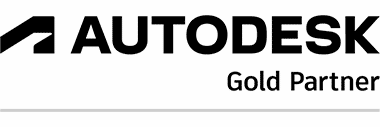Human-centric design prioritizes the well-being, comfort, and productivity of all workplace occupants. Modern facilities managers are tasked with reshaping offices and campuses to create welcoming environments that inspire engagement and support organizational goals. This approach goes beyond aesthetics—it involves ergonomic design, air quality control, intuitive layouts, and a technology ecosystem that responds thoughtfully to employee needs. Human-centric spaces feel both inviting and functional, acting as catalysts for creativity, collaboration, and employee satisfaction.

Facilities management teams play a pivotal role in orchestrating these environments. Their work includes deploying adjustable furniture, installing advanced HVAC and lighting controls, and developing support systems that make work easier and more enjoyable. Seamless technology integration means staff can find colleagues, book resources, and collaborate effortlessly, regardless of their physical location or job function.
The wellness benefits of human-centric design are considerable. Studies link well-designed offices to reduced absenteeism, improved morale, and higher productivity. Incorporating biophilic elements, clean air systems, and health-focused amenities helps mitigate stress and supports long-term employee health—essential for retaining top performers and building resilient organizations.
Borrowing ideas from hospitality, facilities teams can introduce concierge-level services, clear wayfinding, and thoughtful amenities such as fitness centers and quiet lounges. These touches, combined with a focus on accessibility and inclusivity, foster a culture of care and hospitality that sets organizations apart in the competition for talent.
Engaging hybrid teams requires new strategies. Designers blend physical and virtual experiences, integrating robust communication systems and flexible environments to accommodate both remote and in-person staff. This hybrid support underpins collaboration and cultivates belonging across locations.
Continuous feedback and monitoring are fundamental. Facility managers must collect and respond to occupant input, adjusting layouts and amenities according to actual usage patterns and preferences. This responsive approach keeps spaces closely aligned to evolving needs, ensuring no opportunity for improvement is missed.
Sustainability dovetails neatly with human-centric strategies. Selecting environmentally responsible materials, implementing waste-reducing operations, and targeting wellness certifications reflect a holistic commitment to staff and planet alike.
Robotech CAD Solutions can assist in implementing human-centric FM strategies by configuring Archibus features for real-time comfort monitoring, amenity management, and service automation. Our support transforms workspace design, improves health outcomes, and promotes high productivity for modern teams.



